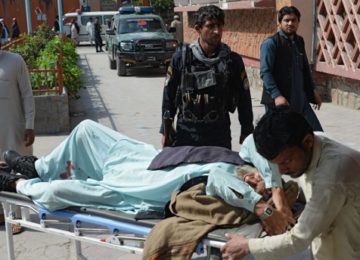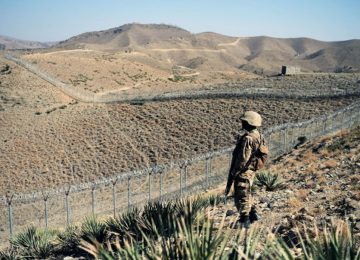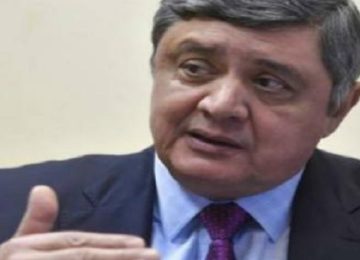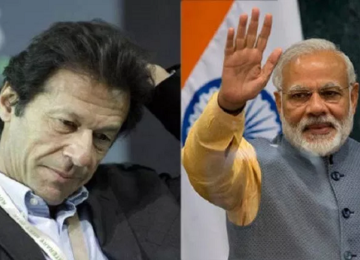Imran Khan’s detractors overlook the fact that he is extremely ambitious and strong-headed, and is neither a businessman nor has commercial stakes anywhere — and most importantly, doesn’t have a history of financial corruption unlike his opponents.
Election 2018 was a big snub to conventional politics, i.e. the status quo which has ruled Pakistan for nearly seven decades, and which Imran Khan has been relentlessly attacking. He himself eventually compromised this fundamental plank of his policy by coopting the so-called electables into his Pakistan Tehreek-e-Insaaf (PTI), yet this doesn’t seem to have hurt him.
Pakistan’s fourth consecutive election demolished old myths, brought down several stalwarts and created new controversies. The entire polity aligned with former Prime Minister Nawaz Sharif has decried what they term the manipulative electoral process under the caretaker government.
A stunning upset was the elimination of Sharif’s former right-hand man, Nisar Ali Khan. He had disassociated himself with the PML(N) after Sharif’s disqualification in the aftermath of the Panama Papers scandal. After his decision to fight independently, Nisar appeared to be the pawn that the military establishment was reportedly banking on to bring in more votes which would benefit the PTI.
Nisar Ali Khan, who had won eight consecutive victories since 1985 from his Rawalpindi constituencies, fell victim to his own indecision and inconsistency.
Other stalwarts who bit the dust in their own strongholds were Maulana Fazal-ur-Rehman, long term chairman of the Parliamentary Committee on Kashmir, Asfandyar Wali Khan, and Sirajul Haq, whose party enjoyed five years as a coalition partner of the PTI in the conflict-ridden Khyber Pakhtunkhwa. They had turned against the PTI before the elections. In the past, they were considered as close proxies of the establishment, particularly against Benazir Bhutto, who had been a victim of an acute slander campaign in the 1990s, led by Husain Haqqani and these clerics.
Here is why the Election 2018 should be seen as a big step forward in Pakistan’s democratic transition:
First, although all those who lost the election, led by the Sharifs, have alleged rigging, the chief observer of the European Union Election Observation Mission to Pakistan, Michael Gahler, seemed satisfied on Thursday morning. “Our observers visited as many as 300 polling stations in 87 constituencies and I have personally visited four polling stations… there is improvement as compared to the previous election held in 2013,” Gahler said in Islamabad.
Second, despite being dubbed a close ally of the security establishment, the PTI had already assumed the high moral ground with literally no financial corruption scandal despite the adverse circumstances created by the mighty Muslim League at the centre. Millions of poor people felt that the PTI would bring in improved health, education and other government services such as police, local government and justice .
Third, deployment of nearly 350,000 troops in and around polling stations fuelled suggestions that they might be used to rig the process, but these troops, along with CCTV cameras and party agents at polling stations, have in fact deterred any possible manipulation of the ballot.
Fourth, all those projected as the proxies of the security establishment — Nisar Ali Khan, Mustafa Kamal (ex MQM), and Mulla Khadim Rizvi (Tahreek Labaik) — have lost the elections. At the same time, Baloch and Pashtoon critics of the military — such as Akhtar Mengal, and Mohsin Dawar, who had been spearheading the Pashtoon Rights Movement (PTM) — have emerged victorious in Waziristan.
Fifth, most parties raised a hue and cry over the radical religious right joining the electoral race through two major outfits, Tehreek Labaik (Rizvi) and Allah Akbar Tehreek. They did get votes but remain largely marginalised by the mainstream parties, with their parliamentary support slipping to less than five percentage.
What lies ahead? A thumping victory notwithstanding, the PTI faces a minefield of problems: a stagnating economy, shrinking government revenues and declining exports. And if the Sharif-led opposition embarks on an agitational path to protest what he claims is an electoral fraud, it will further hamper any fiscal and administrative reform that Imran Khan will try to implement.
Lastly, critics often refer to Imran Khan as the military’s favourite. But this is to overlook a simple fact; Khan, an extremely ambitious, strong-willed person, is neither a businessman nor has commercial stakes anywhere. Nobody has been able to accuse him of corruption and this is his biggest asset.
So, if he has nothing to hide, why would he kowtow to the military establishment? Being a nationalist, Khan’s outlook on foreign relations is very much in sync with that of the military establishment. He advocates a nationalistic narrative that focuses on self-confidence and integrity. Now he has to negotiate the turbulent political landscape complicated by a fledgling economy.
The author Imtiaz Gul is the Executive Director of the Center for Research and Security Studies (CRSS), Islamabad.
© Center for Research and Security Studies (CRSS) and Afghan Studies Center (ASC), Islamabad.








